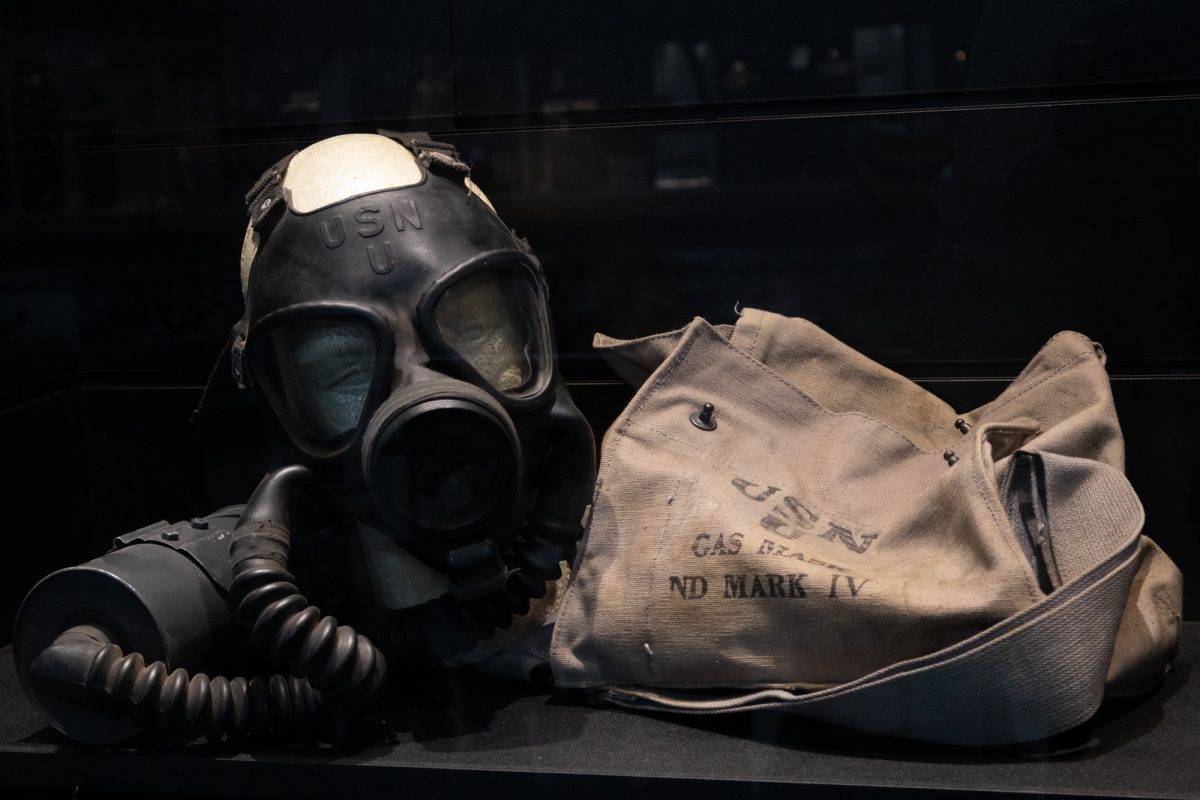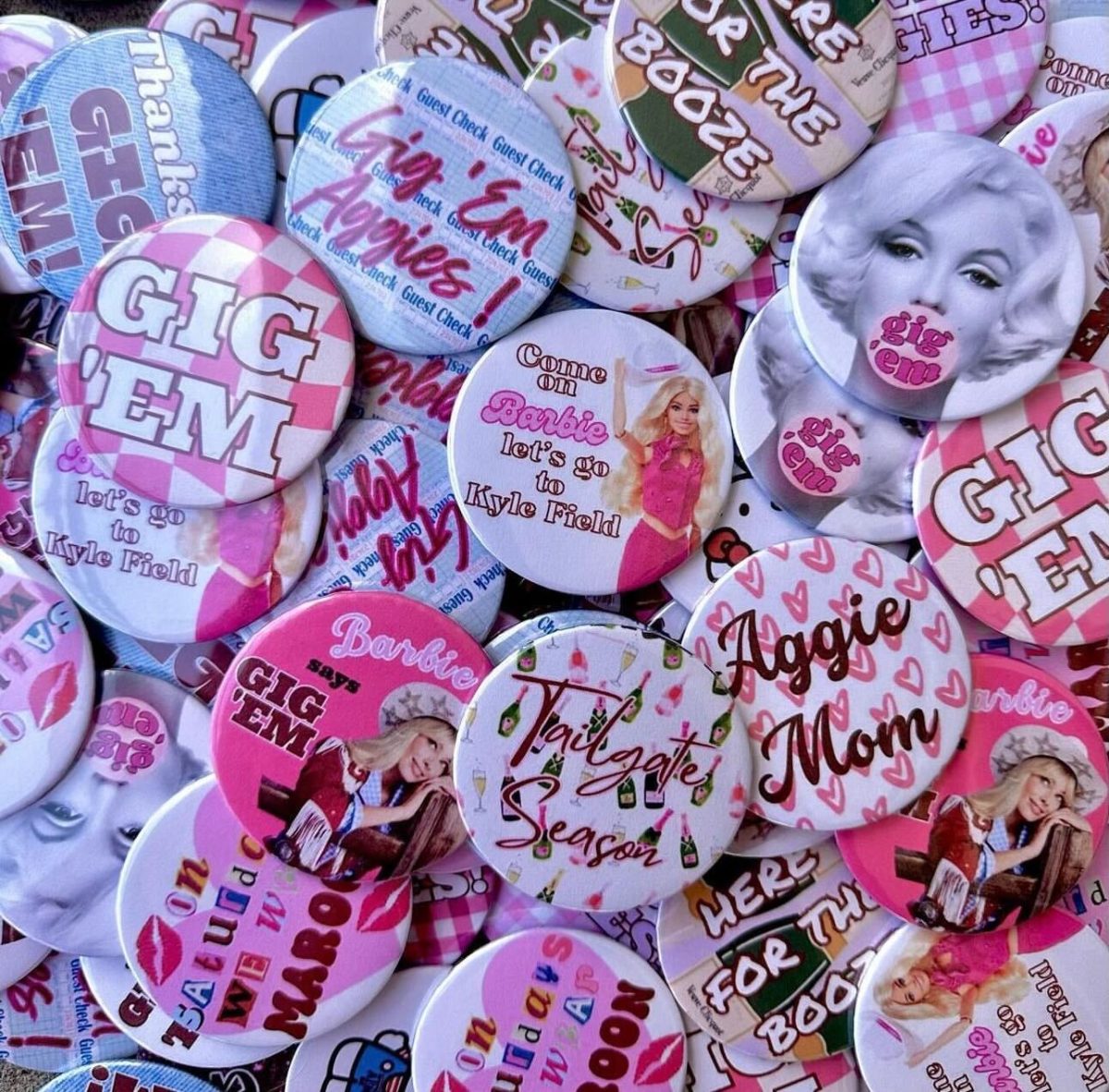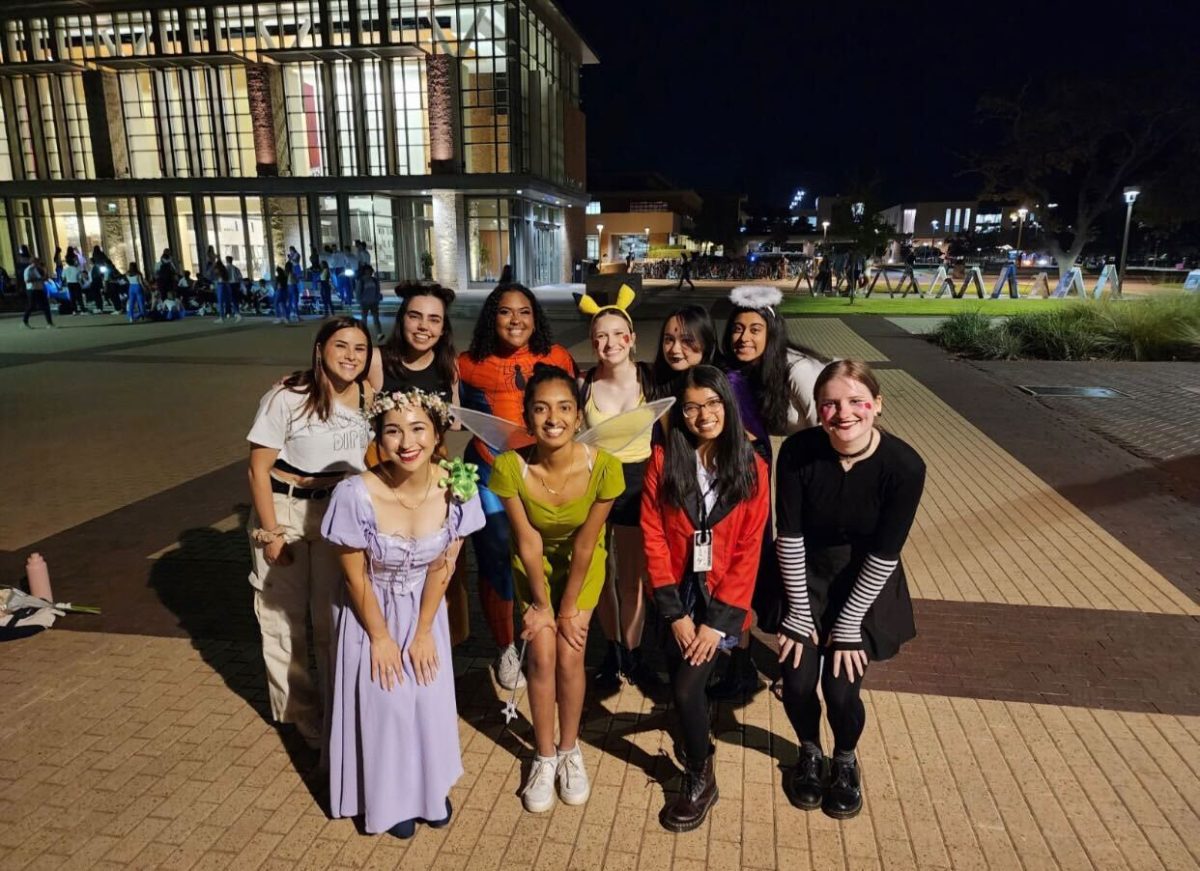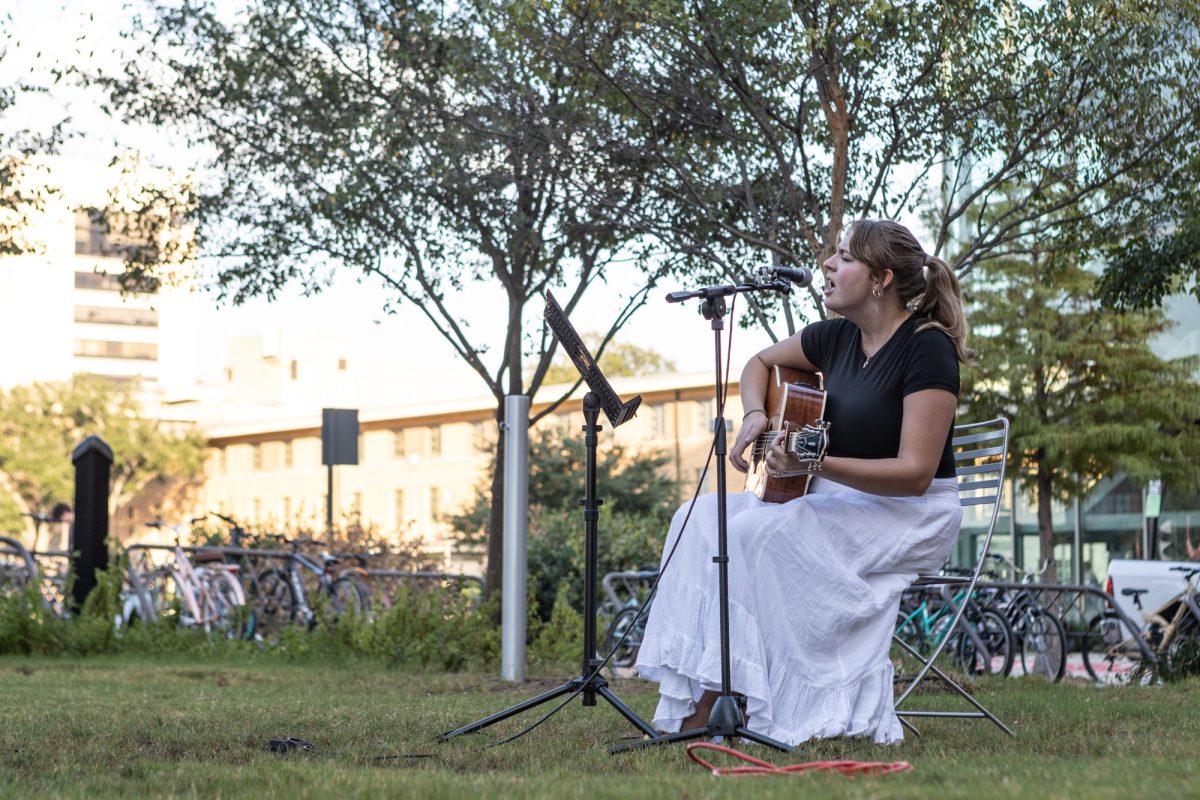On the heels of her Monday Q&A session, Natasha Tretheway, Pulitzer Prize winner and U.S. Poet Laureate, hosted a packed room of students, staff and colleagues Tuesday to discuss her past and read from her most recent collections of poems, “Thrall.”
“‘Thrall’ is the most difficult book I’ve ever had to write, and I realize at this point in my life, the most difficult book I’ll have to live with,” Trethewey said. “The book, when I wrote it, was in my mind a very intimate conversation that I was having with my poet father in a very public way. The book is dedicated to my father. In it I’m concerned with deeply engrained and unexamined notions of racial difference between time and space.”
Trethewey’s father, who died six weeks ago, was also a poet and encouraged her in her career. She said they would often give readings together and would stand at the podium and recite poems about her mother and her childhood.
Raised by a white father and black mother in Mississippi, Trethewey writes about the racial issues that have accompanied her since birth, such as when the state rendered her an illegitimate child because her interracial parents’ marriage was illegal.
Being from Mississippi, Trethewey said her relationship with the South was love-hate, as it was the site of racial oppression but will always be her home.
“I couldn’t imagine being a writer without having the horrors of Mississippi with me to spur me on and to make her a better place,” Trethewey said. “I often mention that those of us who love and hate our homelands are often the greatest patriots, because we are the ones who want to make our homelands better.”
Miscegenation is a common theme throughout many of Trethewey’s poems about her childhood, as she writes about such things as times when she and her father discussed Thomas Jefferson’s affair with his slave, Sally Hemings. She describes in her poem “Enlightenment” that she and her father would go to Monticello, Jefferson’s hilltop home, to discuss race and debate “the distance between word and deed,” referring to Jefferson’s dislike for but dependence on slavery.
Trethewey said she often felt “parsed” along racial lines as a child.
“It was through language in a lot of ways that we saw it — the language of the law as well as custom — and this is one of the reasons that I became fascinated with the way we use language to divide human beings,” Trethewey said.
US Poet Laureate gives reading on campus, talks racial history
October 28, 2014
0
Donate to The Battalion
Your donation will support the student journalists of Texas A&M University - College Station. Your contribution will allow us to purchase equipment and cover our annual website hosting costs.








